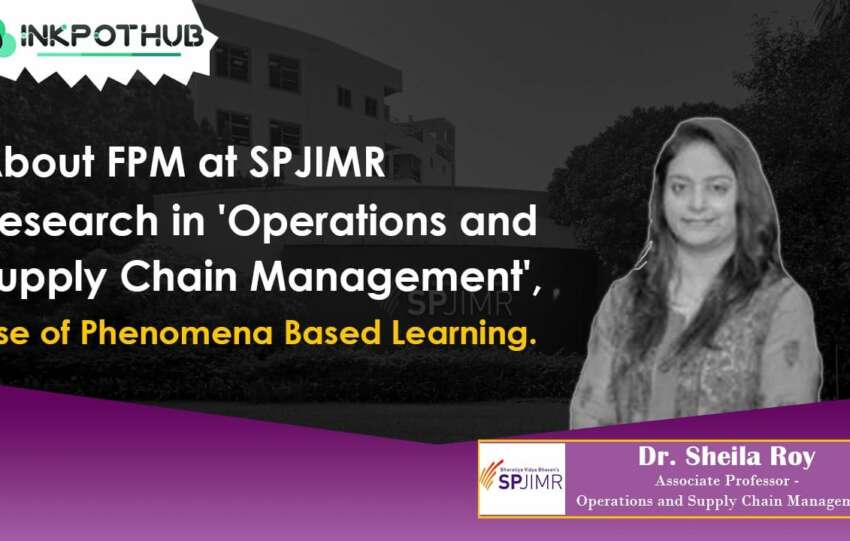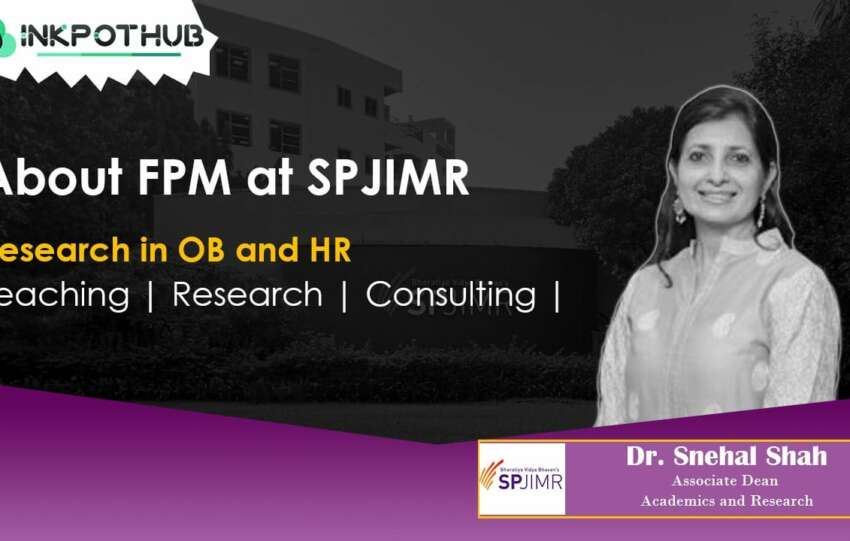Share This Article
Arunima Haldar (Assistant Professor, SP Jain Institute of Management & Research, India) is an avid researcher in the area of Corporate Governance and Gender in Management. A Ph.D. from IIT Bombay, gold medalist in MBA, and graduated from Shri Ram College of Commerce.
Awards: She has been conferred the Global Innovation Award in the category “Writing with Integrity” by Turnitin and has been awarded the best innovative research paper at the 3rd Conference organized by Aston India Centre for Applied Research held at Aston University, Birmingham, England in 2019. She has published widely in peer-reviewed journals (Journal of Business Research, Equality, Diversity, and Inclusion, IIMB Management Review, Managerial Finance, International Journal of Organizational Analysis, Global Journal of Flexible Systems Management, Global Business Review, Corporate Ownership and Control, Corporate Board, Empirical Economic Letters, Indian Journal of Corporate Governance and IUP Journal of Corporate Governance) and conferences (AOM, EURAM, Harvard, Oxford, University of London, Monash, SMU, IIMA). Her doctoral work has received outstanding paper awards twice in Corporate Governance Conferences and has received the best research faculty award during her tenure at NMIMS.
-reviewed journals (Journal of Business Research, Equality, Diversity, and Inclusion, IIMB Management Review, Managerial Finance, International Journal of Organizational Analysis, Global Journal of Flexible Systems Management, Global Business Review, Corporate Ownership and Control, Corporate Board, Empirical Economic Letters, Indian Journal of Corporate Governance and IUP Journal of Corporate Governance) and conferences (AOM, EURAM, Harvard, Oxford, University of London, Monash, SMU, IIMA). Her doctoral work has received the outstanding paper award twice in Corporate Governance Conferences and has received the best research faculty award during her tenure at NMIMS.
Editorial Experience: She is an Associate Editor of International Journal of Global Business and Competitiveness and an editorial review board member of Journal of Risk Finance, International Journal of Law and Management, Qualitative Research in Financial Markets, Management Accounting, Corporate Board, Corporate Ownership and Control, Risk Governance and Control, Journal of Governance and Regulation, Global Journal of Flexible Systems Management. She is a member of the International Scientific Committee at Virtus Global Centre of Corporate Governance and International corporate governance conferences in Italy, Germany, and Paris.
Thank you, Dr. Arunima Haldar, for your time. Your interview will motivate all of Inkpothub’s community.
Question: Please through some light on your research interest areas?
Answer: My research interest lies in the areas of corporate governance and women on boardrooms.
Question: What is your definition of Board Diversity? Explain about it in a research context.
Answer: Board diversity refers to the demographic heterogeneity on the boardroom which can be in terms of skillset, experiences, domain expertise, gender, ethnicity, age, geography, and independence. However, my interest lies in the domain of gender diversity.
Gender diversity in the literature has been looked at from the business case perspective or the social equity perspective. One of the leading voices in the space – Adams and Ferreira (2009) suggests that gender diversity improves corporate governance which further enhances financial performance. Thus, gender diversity could add creativity, add varied perspectives by breaking the groupthink by existing boy’s club, can provide signaling and mentoring to the women workforce at large and finally promote the legitimacy of the board (Ferreira, 2010).
Question: What is the implication of your latest work ‘A Bibliometric Analysis of Board Diversity: Current Status, Development and Future Directions’?
Answer: The work on bibliometric analysis has implications for researchers who can understand the contribution in the area based on authors, countries, and institutions. Further, the most influential study, authors, and prominent themes in the area are identified using citation, co-authorship network analysis, co-occurrence, and co-citation analyses. Finally, barriers and potential research areas are suggested to direct future research.
Policymakers could look beyond gender diversity while promoting diversity initiatives for corporates.
Question: Gender in Management is a very vast area to study. What is your research space in this broad area?
Answer: My domain expertise lies in women on board rooms.
Question: When did you start reviewing research papers?
Answer: I started reviewing paper since my doctoral days at IIT Bombay.
Question: What qualifies to be on the editorial board of a journal?
Answer: An editorial board member of a journal has to steer through the whole issue of their journals keeping the interest of all stakeholders.
An appreciation for originality and developmental feedback to the authors and reviewers are the key traits.
Question: How does review help in writing a research paper?
Answer: Reviewing helps the author understand the double-blind review process and helps in identifying the key parameters on which papers are evaluated.
Question: Writing research papers is a big and long task. It is time-consuming. What keeps you motivated?
Answer:That’s an interesting question. To me, the joy of creation and contributing to the body of knowledge is the biggest motivation. Research helps you to delve deeper to find the truth and thereby enjoy the process of creation.





